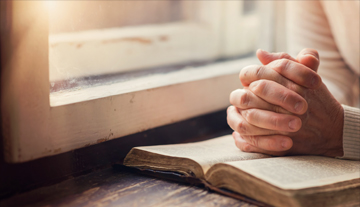Brown Survey Examines Students' Faith, or Lack of It
Almost half of surveyed Brown University students arrived without practicing a religion and remain faithless on campus, according to a recent poll by The Brown Daily Herald.
In April, the student newspaper released the results of a survey that found 42 percent of undergraduates entered Brown without a religion and still consider themselves to be secular.
At least one U.S. social scientist found those results disturbing, highlighting the nature of how religious practices often promote the well-being of individuals and, ultimately, families and communities.
In particular, there are significant ties between the frequency of religious worship and most of life's key sectors, namely mental health, physical health, education, income, and longevity.
"Those who worship weekly do best," said Patrick Fagan, a social science researcher who holds a doctorate from University College Dublin.
As for the Herald survey, another 5 percent of respondents said they stopped practicing a religion after matriculating to Brown. In the spring survey of nearly 1,200 students, yet another 12 percent said they practice the same religion, but with less commitment.
On a brighter note, 9.5 percent of survey participants said they embrace the same religion they held upon entering Brown with more commitment, and 1 percent of respondents enrolled in Brown without a religion, but have since started practicing one. Some 29 percent indicated they practice the same religion with the same commitment level as they did before arriving at Brown.
For Fagan and other Christian leaders with ties to top universities, the results of the Brown survey provide a troubling commentary.
In addition to serving as a senior fellow with the Family Research Council, Fagan worked as a deputy assistant secretary in the U.S. Department of Health and Human Services. He is also the father of a pair of Princeton alumni.
Research highlights how faith plays a direct role in an individual's happiness and sense of well-being, according to Fagan, who reviewed a series of studies probing the impact of religion for a report he published in 2006.
Membership in a faith community also can boost coping skills. As well, it promotes a favorable self-image and helps foster hope, benevolence, and a belief in divine grace, Fagan wrote in a report for The Heritage Foundation.
Likewise, numerous studies demonstrate a strong association between religious practice and decreased behavioral habits tied to cigarettes, alcohol, and recreational drugs, Fagan said.
As well, teens and undergraduates who worship weekly have lower levels of depression and rates of sexual activity outside of wedlock, said Fagan, also the director of the Marriage and Religion Research Institute.
Fagan and other Christian leaders asserted that the importance of developing and practicing faith during collegiate endeavors cannot be underestimated. "The habits they develop can have lifelong effects," said Fagan.
Chuck Hetzler, ministry director for New York City Christian Union, echoed those comments and highlighted the critical nature of reaching undergraduates with Christ's gospel.
"Students are more openly exploring what they believe at this time in life," said Hetzler, who previously served as the Christian Union's teaching fellow at Princeton.
On a related note, Kent Dahlberg, a longtime campus minister who served with Cru at Brown from 1983 to 1988, said a series of practical reasons conspire against spiritual training and advancement for many undergraduates.
"In many ways, elite-school college life is, by design, a protective bubble that insulates young people from feeling a deep sense of need," said Dahlberg.
"Nevertheless, God can be at work amidst all of that security and ease, drawing people to Himself through positive experiences and relationships, as well as through unexpected difficulties that break through a comfortable self-satisfaction and self-assurance."
Kent and Denise Dahlberg lead Integrare at Dartmouth College, a campus ministry focused on professors, administrators, graduate students, alumni, and community leaders.
Many professors, administrators, and coaches do not openly practice or encourage religious involvement. Likewise, Ivy League students are "awash in a sea of opportunities and distractions," Kent Dahlberg said. "It is easy to forego religious activities for more compelling involvements."
As for Brown, the majority of students who practice the same religion with the same commitment identify as Catholic or Jewish, according to the Herald. "Being welcome and feeling a part of something makes you feel at home again," Peter Fernandez, Brown '13, told the Herald.
Along related lines, Cassandra Hough, a Princeton alumna of 2007 and founder of The Love and Fidelity Network, said she has witnessed scores of Ivy-League students, ultimately, graduate stronger in their faith.
"The spiritual, cultural, and academic climate focused them to take ownership of and defend their faith," said Hough, a Catholic.
That is critical because the worldview students embrace will "inform how they make decisions about what is right and wrong," Hough said.





